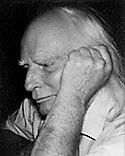H.P. Grice's notion of 'speaker meaning'
Actually, H.P. Grice himself makes no use of the term "illocutionary", and does not offer any definition of that term. (He also does not seem to join the equivocal use of 'speech act' and 'illocutionary act', but seems to use 'speech act' in an underspecified, or rather comprehensive sense.)
However, many "speech act" theorists believe, or presume, that Grice did deal with "illocutionary acts", or that the "illocutionary act" can be identified with one (or the other) of the phenomena Grice focussed on in his famous article "Meaning" (1957).
Grice introduced the notion of 'speaker meaning' (in the sense of a person's meaning something in making an
utterance) in the course of an analysis of expression meaning. In its initial approach (1957), Grice suggested an analysis of the meanings of expressions in terms of what speakers mean when
they utter these expressions with communicative intentions. Very roughly, what an expression means is what people mean with or by that expression.
It is important to notice that Grice's approach involves two different phenomena worth calling, or actually being called, "speaker meaning":
(1) What a speaker means in making an utterance--this aims, at least roughly, at what the speaker intends to convey by making their utterance.
(2) What the speaker means by the expression they utter--this aims, at least roughly, at the meaning which the speaker applies to the expression.
(The best ways of determining expression meaning along the lines Grice pursues is perhaps to say that what an expression means is what people mean by it (addressing the former sense) when meaning something in uttering it (addressing the latter sense).
Corresponding to the two types of "speaker meaning", there are two possible ways of applying the idea that "Grice's speaker meaning" and "illocutionary acts" are the same thing.
(1) To perform an "illocutionary act" is to mean something in making an utterance (e.g., in uttering an expression).
(2) To perform an "illocutionary act" is to mean something by an expression.
These two definitions deliver two very different conceptions of what an "illocutionary act" is supposed to be. Yet either of them has been seized in the following. Thus, S. Schiffer (1972) as well as Bach & Harnish (1979) develop definitions of "illocutionary acts" along the lines of (1); while W.P. Alston (1964, 2000) picks up the idea expressed in (2).

